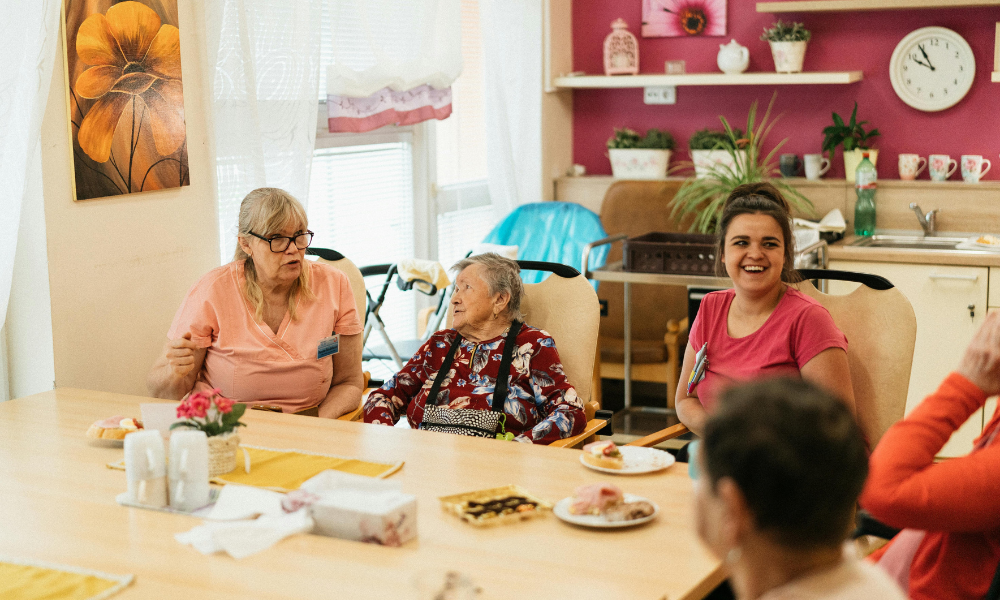March is a special time dedicated to honoring and celebrating the remarkable contributions of women throughout history. Women’s History Month is an opportunity to recognize the strength, resilience, and achievements of women who have paved the way for progress and equity. As we embark on this month-long journey of reflection and celebration, VOYCE is considering women’s impact in health care and caregiving. Up to 81% of formal and informal caregivers are women. As professionals in the health care field and long-term care sectors and as informal or family caregivers to loved ones, women spend much of their lives providing care through caregiving and domestic work. The reliance on women for this work can be attributed to deeply rooted gender norms and sociocultural experiences. Though changes are taking place in society, women’s contribution to caregiving continues to exceed that of men.
Women as Professional Caregivers
Women are heavily represented in the long-term care sector, holding an average of 90% of the jobs in the field. Outside of long-term care, women make up 75% of the health care workers in the United States today. Women make up more than 85% of workers in the largest health care occupations: registered nurses, nursing aides, psychiatric aides, and home health aides. While women’s representation in health care shows no sign of slowing, the ongoing lack of representation in senior roles is disappointing, with representation rates steadily declining as the employment level rises through managerial positions. Despite this, women’s contributions at each level contribute to increased diversity in the medical field, leading to innovation and inclusion.
Women as Family Caregivers
Family caregivers are likely and sometimes expected to perform complex tasks typically done by nurses, pharmacists, or respiratory therapists and do so unpaid while filling other roles such as care coordinator, advocate, and decision-maker. On average, women in the United States provide 2.2x more unpaid family caregiving on a time-per-day basis in comparison to men. The unpaid contributions of family caregivers are estimated to be valued at $600 billion annually. Though this real and necessary care lies outside of the market economy, its importance cannot be understated. This is not to mention the $30 billion in productivity losses caused by the disruption in employment experienced by family caregivers that reduce income, social security and other retirement benefits.
Women’s History Month is a time to honor the achievements and resilience of women throughout history. By educating ourselves about women’s impact on health care and caregiving, supporting health care policy that supports women, participating in events, and celebrating the women in our lives, we contribute to a more inclusive and equal future. Thank you to the women who help shape, raise, and care for us.
Sources:
https://jamanetwork.com/journals/jama-health-forum/fullarticle/2805890
https://info.umkc.edu/womenc/2022/03/09/the-gender-gap-in-caregiving-and-why-women-carry-it/
www.careerstaff.com/clinician-life-blog/womens-history-month-impact-of-women-in-healthcare/
Written by Bianca Cortez Perez, VOYCE Social Work Practicum Student, with editing by Shelby Collier, VOYCE Event Coordinator.

